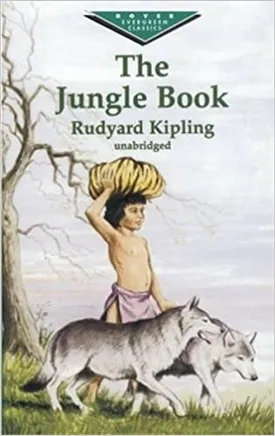Rudyard Kipling
Rudyard Kipling (1865-1936) was an English author, most famous for his renowned stories such as The Jungle Book, Kim, and Just So Stories. His works have been adapted for both film and musical theatre, and much of his work was based in the British Raj. Kipling was born in Bombay, India, raised mostly in England, and returned to India in his late twenties where he wrote his most famous works.
Kipling was born during British colonialism in India, and his works were often reflective of his experiences growing up as an Anglo-Indian. He often wrote about adventure and wartime experiences, and was highly respected by British soldiers and colonists during his lifetime. His stories featured a unique blend of romance, patriotism, adventure, and philosophy.
Kipling is mostly remembered for his works written in support of British colonialism in India, which were dubbed the “Imperialist Literature”. This consists of works such as The Jungle Book (1894), Kim (1901), Just So Stories (1902), and Puck of Pook’s Hill (1906). In these works, Kipling portrayed Britain as a powerful and benevolent nation with a great knowledge and respect for the Indian culture.
The Jungle Book was one of his most famous works and features the adventures of Mowgli, a boy raised by wolves and protected by jungle animals. It contains seven stories originally published separately in magazines, including “Rikki-Tikki-Tavi” and “Mowgli’s Brothers”. The Jungle Book has been adapted into numerous film and stage adaptions, and is considered a beloved classic for children and adults of all ages.
Kim is another one of Kipling’s works which tells the coming of age story of a young Irish-English orphan who lives in India. The story follows the adventures of Kimball O’Hara, who is caught between the loyalties of India and Britain. Kim was well-received by readers, and Kipling himself considered it his “masterpiece”.
The Just So Stories are twelve stories about how the animal world came to be, inspired by the African folktales. The stories attempt to explain the circumstances of how everything became the way it is today, such as how the elephant got its trunk or how the leopard got its spots. Written in a unique style of fantasy and humor, these stories remain beloved and are often used in childhood education.
Kipling also wrote several novels, including Captains Courageous (1897) and Stalky & Co. (1899). His works were highly praised by Edwardian readers and later by modern critics. He was awarded the Nobel Prize in Literature in 1907 "in consideration of the power of observation, originality of imagination, virility of ideas and remarkable talent for narration which characterize the creations of this world-famous author".
Kipling’s works have continued to be adapted into multiple forms throughout the years, and he is remembered as one of the most beloved authors of all time. His works have entertained readers for generations and have also been used to illustrate the history of British colonialism in India.

